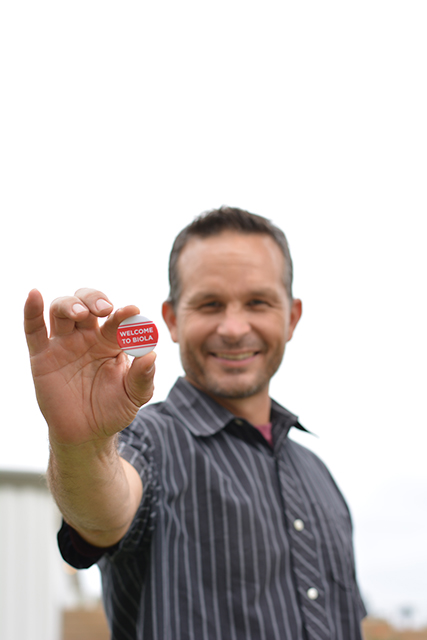Move-in day, communion, Student Orientation Services, Academic Commencement Dinner, University Welcome, commissioning, convocation — only a few of the enormous amount of events available to incoming students.
The purpose of the plethora? Protect students from themselves. Matthew Hooper, Associate Dean of Students, carefully explained the need for intentionality in planning such an important weekend. Recently, the welcome process has shifted from simply opening weekend to opening week, an entire seven days of orientation and, collaterally, necessary distraction.
What can you say about how Welcome Week went? Do you think it went well?
“Overall, I think this was another outstanding year in terms of opening weekend — opening week now — it’s kind of expanded into a week. A story from someone in [Student] Development who was up in San Francisco I think sums it up. They were there and two groups of parents who had new students were talking to this staff person and just said, ‘You guys run a really class-act,’ unsolicited. So I think that statement, and then it was referred back to me, I think captures really the quality of that opening week, weekend, orientation experience. We really work as a team to make our first impression as good as it possibly can be. And we’re not perfect, but we’re trying to make it as good as it can possibly be. And there’s layer upon layer of specific details and decisions that we make that make for an amazing experience.”
Lots of parents attend Welcome Week events. How do you manage to include them in the experience?
“We still have this opening weekend focus, which is Friday and Saturday for parents, and Friday, Saturday, and Sunday for students. We have these major events: the University Welcome on Friday, communion service Saturday night, community commissioning Sunday night. Parents and their students — then just students for commissioning. I administrate those events. There is this push toward the weekend but we’ve expanded our services to the week prior, which we call Opening Week. So we have all signage set up by Monday morning, because we have parents coming in with Torrey, and global students’ parents. So all these new arrivals are coming in earlier than opening weekend so we’re trying to accommodate them.”
Were there any obstacles that added extra challenges, or has everything been ironed out throughout the years?
“Before the science building was being constructed, we had a huge tent up on McNally. Well, with the science building there, that’s kind of hard for accessibility. So we had to move all our events toward the center of campus, then working as a team allowed us to move these major events, meals to Metzger, to the center of campus around the SUB. And that was a huge endeavor to make that shift, but part of that was because of the construction with the science building, but some of that was just needing to adjust the way we’re doing things to accommodate the growing challenges with the growing number of students and their families. We’ve gotten bigger and bigger over the years and then over the last three years we’ve sort of flattened out. It’s around that 12 to 13 hundred mark.”
There are quite a few events over the first few days of new students being here that can easily get overwhelming. Why is that?
“There’s a best practice balance where we program enough so students don’t have a lot of downtime space to let their anxieties take over in this major time of transition. So actually the programming we do is actually intentional. We don’t want to create all this space for students to just be like, ‘What am I doing here?’ We intentionally program like we do to provide the relevant information they need to be successful as students, build connections they need to be students here and to keep the momentum building into the first day of classes. So, they’re basically led through programming into the first day of classes then they shift into another year with all the classes they’re attending.
We’re filling the space so the voices of fear and anxiety and fear of transition and loneliness don’t take over and potentially move students to question whether they should be taking this step into their lives.”







